
Find Help
More Items From Ergsy search
-
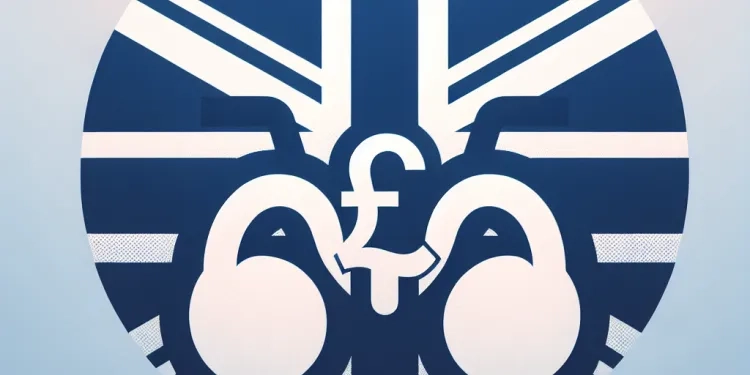
What is testicular cancer?
Relevance: 100%
-

What is testicular cancer?
Relevance: 99%
-

What is testicular cancer?
Relevance: 99%
-
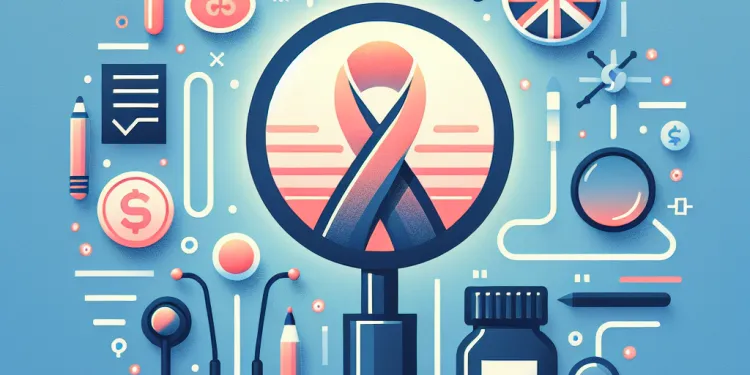
Is testicular cancer treatable?
Relevance: 98%
-

How common is testicular cancer?
Relevance: 96%
-
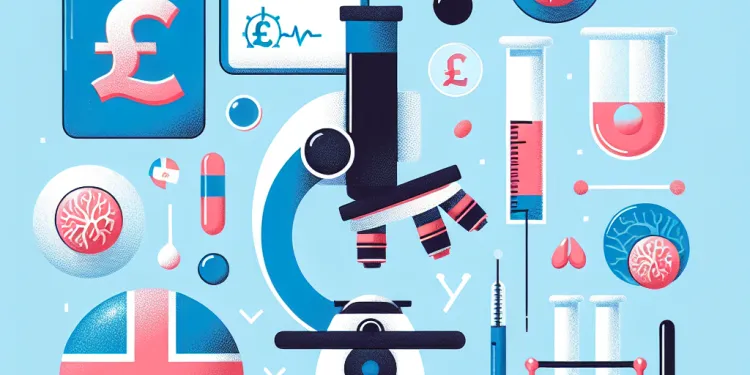
What causes testicular cancer?
Relevance: 96%
-
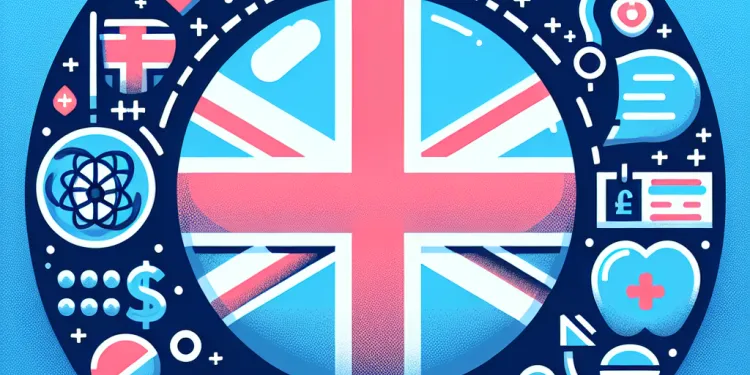
Who is at risk for testicular cancer?
Relevance: 96%
-
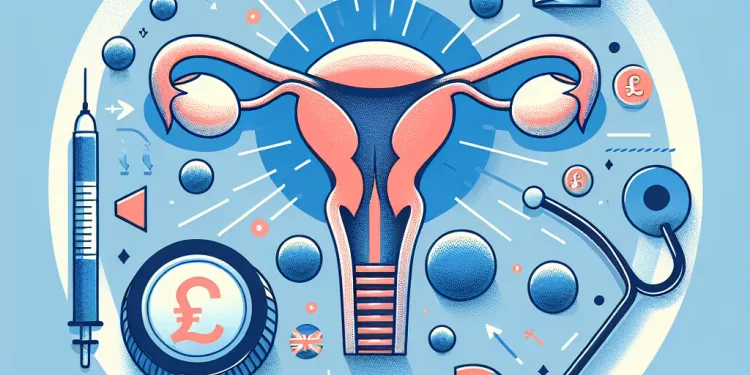
What are the symptoms of testicular cancer?
Relevance: 95%
-

What are the stages of testicular cancer?
Relevance: 94%
-
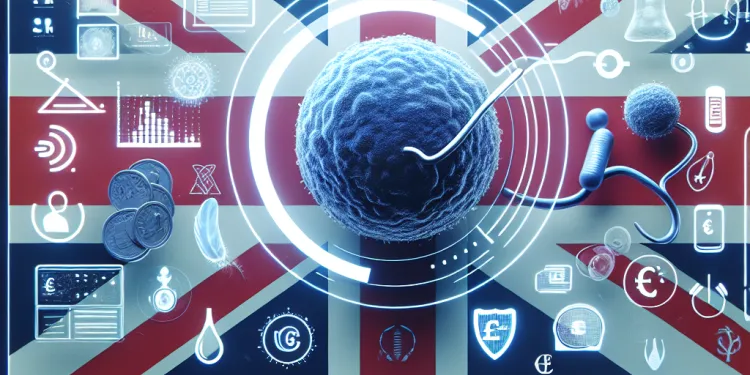
How is testicular cancer diagnosed?
Relevance: 93%
-
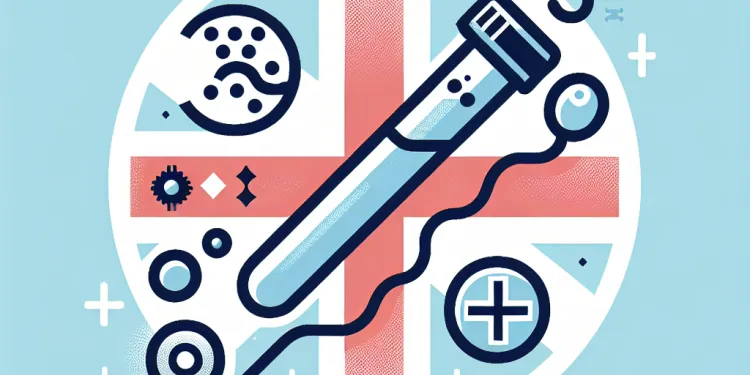
Is fertility affected by testicular cancer?
Relevance: 92%
-

What is the survival rate for testicular cancer?
Relevance: 92%
-
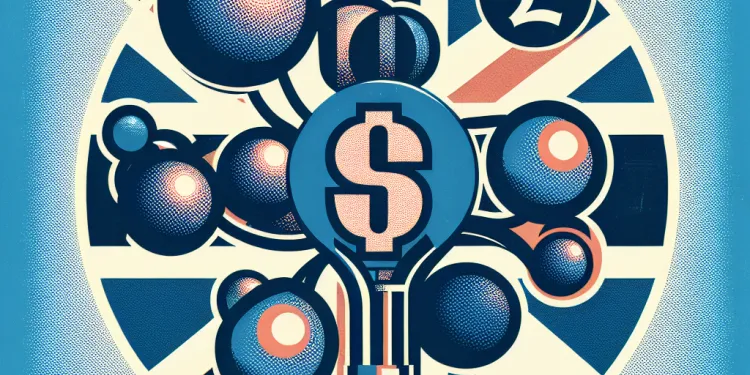
What types of treatments are available for testicular cancer?
Relevance: 89%
-

Are there support groups for those affected by testicular cancer?
Relevance: 87%
-

Can testicular cancer recur after treatment?
Relevance: 87%
-

Can testicular cancer spread to other parts of the body?
Relevance: 87%
-
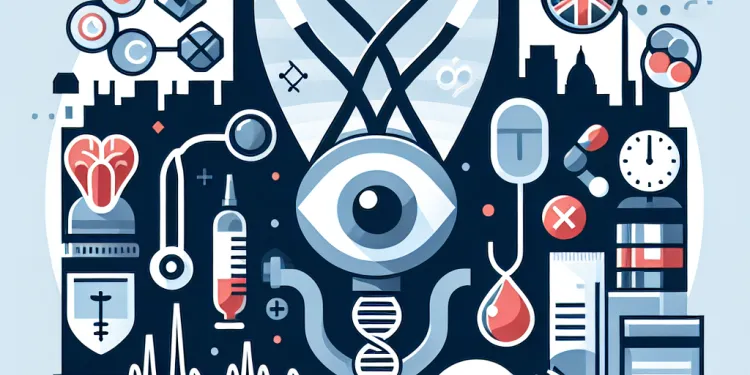
What role do tumor markers play in testicular cancer?
Relevance: 84%
-

Can lifestyle changes help prevent testicular cancer?
Relevance: 84%
-
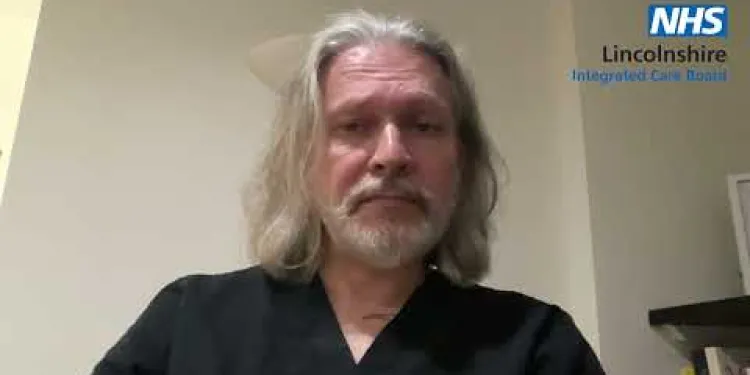
Getting to know your Testicles: Testicular Cancer Awareness with Dr James Howarth, Spilsby Surgery
Relevance: 79%
-

How can I perform a testicular self-exam?
Relevance: 66%
-

When should I see a doctor about potential testicular cancer?
Relevance: 58%
-
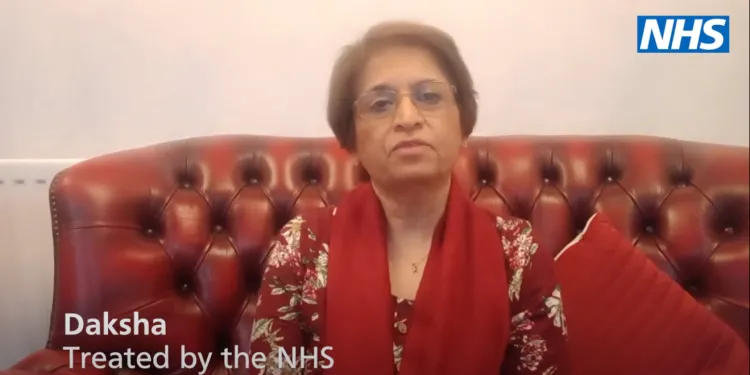
What is Cancer?
Relevance: 37%
-
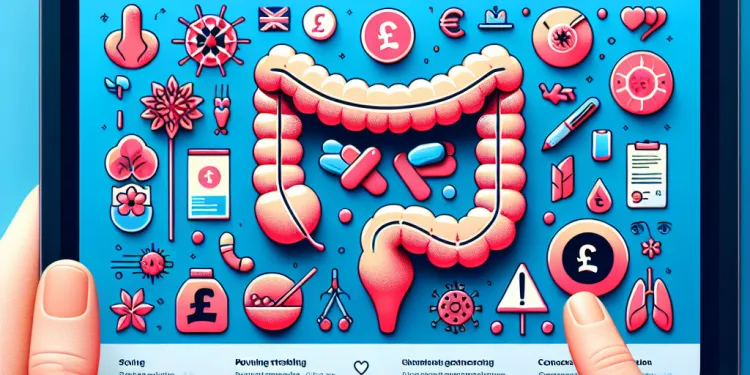
What are the risk factors for bowel cancer?
Relevance: 37%
-
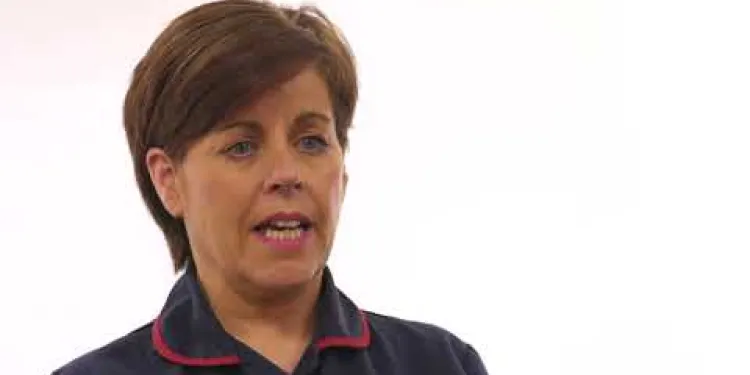
Ovarian Cancer
Relevance: 37%
-
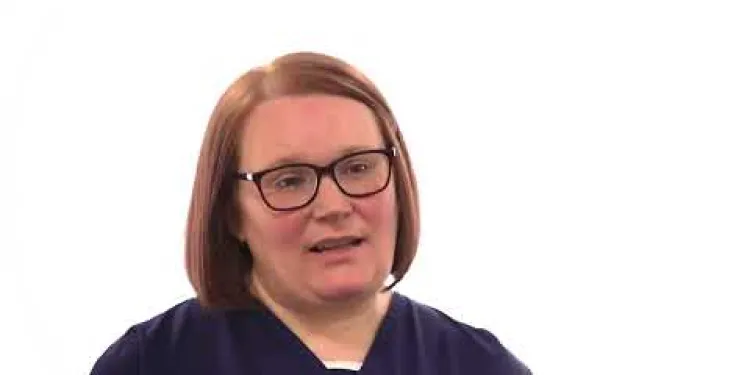
Vaginal Cancer
Relevance: 37%
-
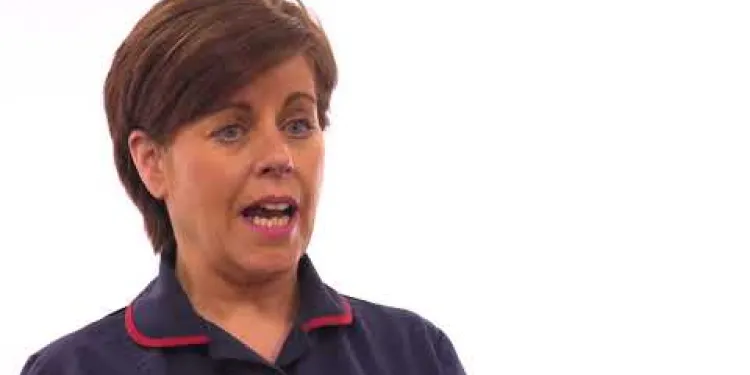
Endometrial Cancer
Relevance: 37%
-
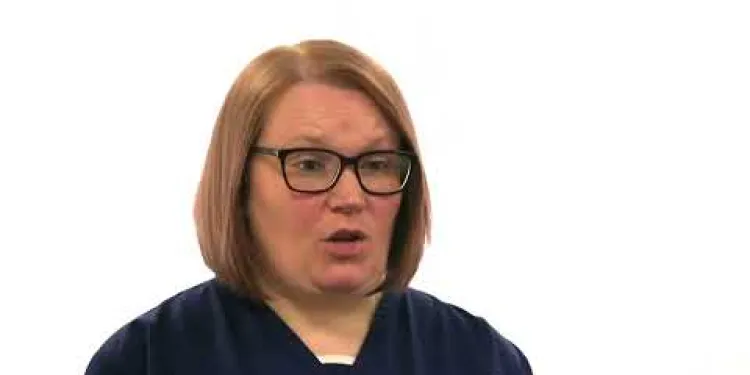
Vulval Cancer
Relevance: 37%
-
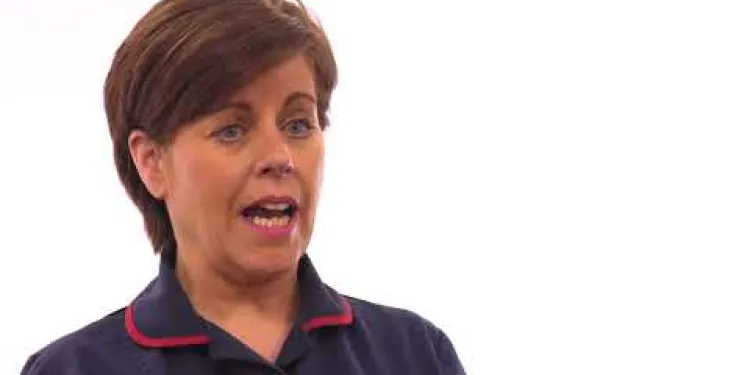
Endometrial Cancer
Relevance: 37%
-
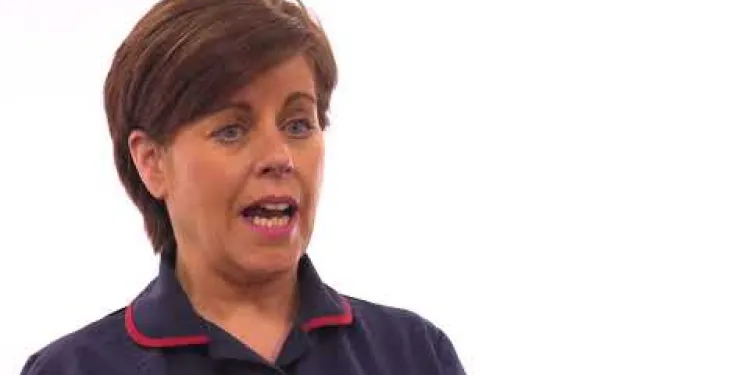
Endometrial Cancer
Relevance: 36%
-
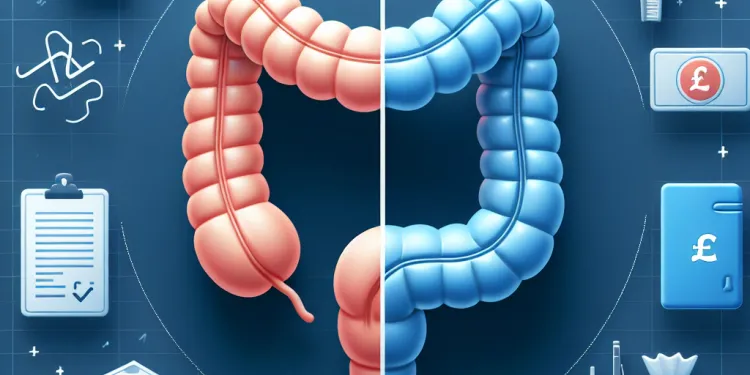
What is the difference between colon cancer and rectal cancer?
Relevance: 36%
-

What is cancer screening?
Relevance: 35%
-
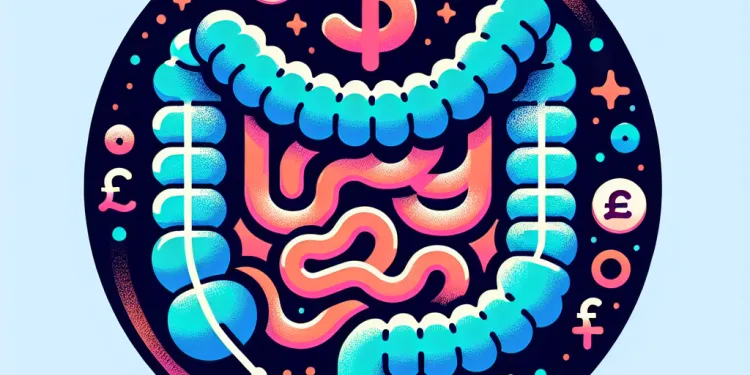
What is colorectal cancer?
Relevance: 35%
-

What is Bowel Cancer?
Relevance: 35%
-
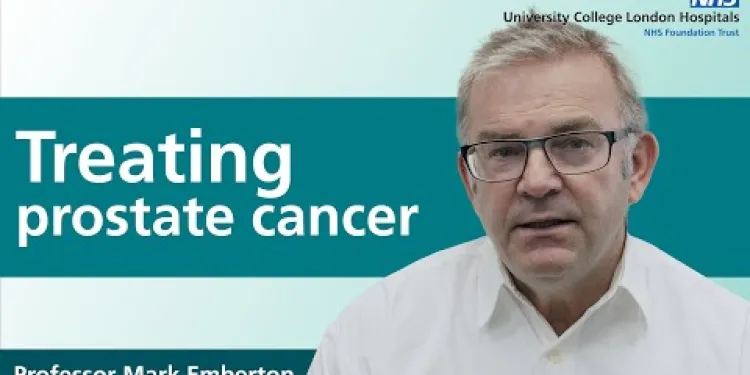
Treating prostate cancer
Relevance: 35%
-
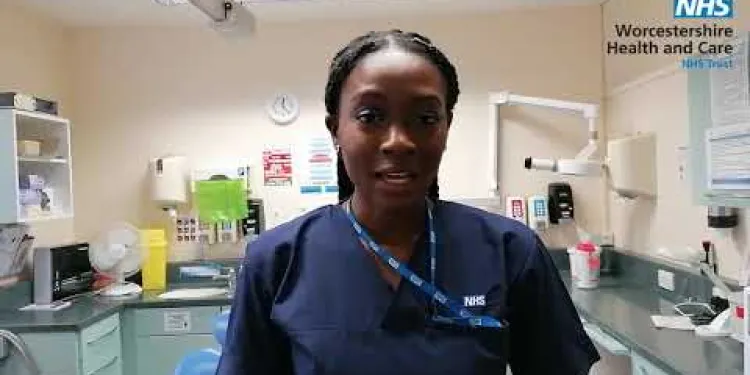
Mouth Cancer Awareness
Relevance: 35%
-
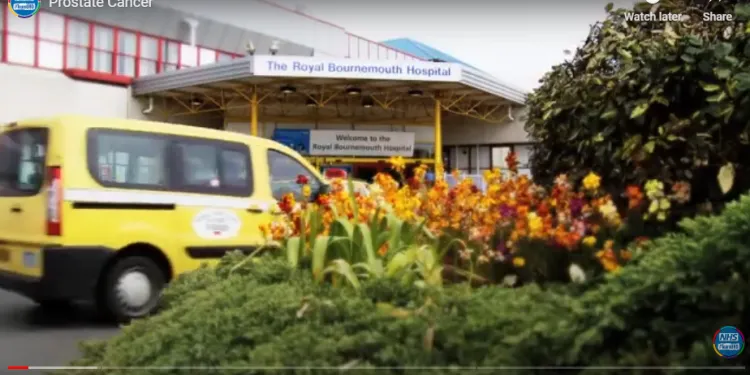
What is Prostate Cancer?
Relevance: 35%
-
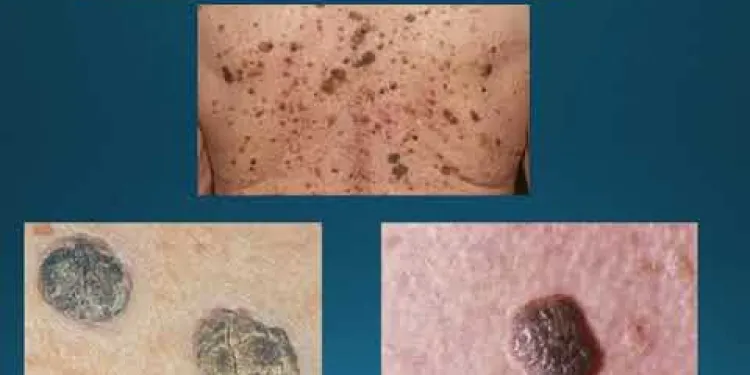
Skin cancer education
Relevance: 35%
-
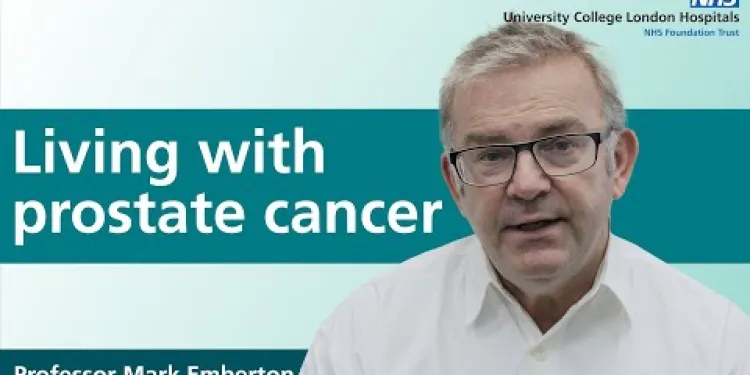
Living with prostate cancer
Relevance: 35%
-
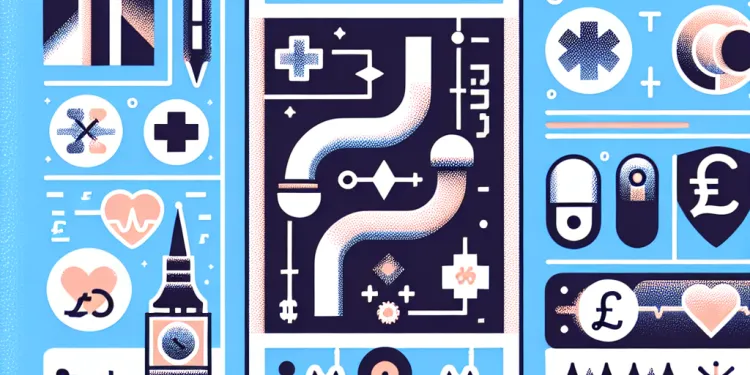
What is Pancreatic Cancer?
Relevance: 35%
-
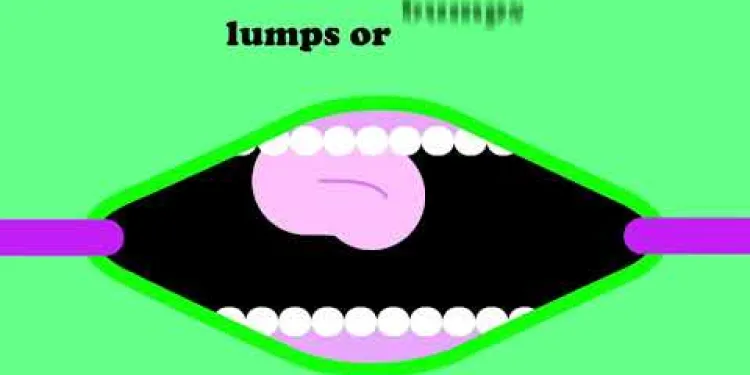
Mouth Cancer Infomercial
Relevance: 35%
What is Testicular Cancer?
Testicular cancer is a type of cancer that starts in the testicles, which are the male reproductive glands located in the scrotum. It occurs when cells in the testicles grow uncontrollably and form a tumour. Although it is relatively rare compared to other cancers, testicular cancer is the most common cancer in young men aged between 15 and 49 in the UK.
Causes and Risk Factors
The exact cause of testicular cancer is unknown, but several risk factors have been identified. Men with a family history of testicular cancer, those with a history of undescended testicles (cryptorchidism), and individuals with abnormal testicular development are at increased risk. Other factors may include age, with the majority of cases occurring in younger men, and ethnicity, as white men are more affected than men of other ethnic groups.
Signs and Symptoms
Common signs and symptoms of testicular cancer can include a lump or swelling in one of the testicles, which may or may not be painful. Other symptoms could be a dull ache in the lower abdomen or groin, a feeling of heaviness in the scrotum, or a sudden collection of fluid in the scrotum. It is important to seek medical advice if any of these symptoms are noticed, as early detection greatly improves the chances of successful treatment.
Diagnosis and Treatment
Diagnosis of testicular cancer usually involves a physical examination, ultrasound scan, and blood tests to check for tumour markers. If cancer is suspected, an orchiectomy, which is the surgical removal of the affected testicle, may be performed for both diagnosis and treatment. Additional treatments may include chemotherapy and radiotherapy, depending on the stage and type of the cancer.
Prognosis and Prevention
The prognosis for testicular cancer is generally very good, with a high survival rate, especially when detected early. Most men who are treated for testicular cancer go on to live normal, active lives. Prevention strategies include regular self-examinations to detect any unusual changes in the testicles early. While there is no sure way to prevent testicular cancer, being aware of personal risk factors and symptoms can help in early detection and treatment.
What is Testicular Cancer?
Testicular cancer is a kind of sickness found in the testicles. Testicles are parts of the body that help make babies. They are inside a bag of skin called the scrotum. Testicular cancer happens when bad cells grow in the testicles and make a lump. It is not very common, but it happens more in young men aged 15 to 49 in the UK.
Causes and Risk Factors
We do not know exactly why testicular cancer happens. But some things can make it more likely. If other men in your family had testicular cancer, you might get it too. If your testicles did not come down into the scrotum when you were a baby, you might be at risk. Most men who get it are young. White men get it more than other men.
Signs and Symptoms
Look for a lump or swelling in a testicle. It might not hurt. You might feel pain or a dull ache in your lower belly or groin. Your scrotum might feel heavy or have extra fluid. If you notice any of these, see a doctor. Finding it early can help treatment work better.
Diagnosis and Treatment
To check for testicular cancer, doctors will look at your testicles and might do an ultrasound scan. They might take blood tests. If they find something, they may remove the testicle that is sick. This helps find out if it's cancer and treat it at the same time. Other treatments might include medicine to kill cancer cells (called chemotherapy) or using rays to kill cancer cells (called radiotherapy). The treatment depends on how much cancer there is.
Prognosis and Prevention
Most men with testicular cancer can get better, especially if it is found early. After treatment, most men live normal, active lives. To catch it early, check your testicles often for anything unusual. Knowing your risks and being aware of changes can help catch it early.
Frequently Asked Questions
What is testicular cancer?
Testicular cancer is a type of cancer that occurs in the testicles, which are the male reproductive glands located in the scrotum.
What are the symptoms of testicular cancer?
Symptoms can include a lump in either testicle, a feeling of heaviness in the scrotum, a dull ache in the abdomen or groin, and swelling or discomfort in the testicle or scrotum.
How common is testicular cancer?
Testicular cancer is relatively rare, but it is the most common cancer in males aged 15-35 years old.
What causes testicular cancer?
The exact cause is not known, but risk factors include an undescended testicle, family history of testicular cancer, and certain genetic conditions.
How is testicular cancer diagnosed?
Diagnosis usually involves a physical exam, ultrasound of the testicles, and blood tests for tumor markers.
What are the stages of testicular cancer?
Testicular cancer stages range from I to III, with Stage I being localized to the testicle and Stage III indicating spread to other parts of the body.
Is testicular cancer curable?
Yes, testicular cancer is highly treatable and often curable, especially when diagnosed early.
What treatments are available for testicular cancer?
Treatment options include surgery, radiation therapy, and chemotherapy, often depending on the stage and type of the cancer.
Can testicular cancer spread to other parts of the body?
Yes, testicular cancer can spread to the lymph nodes, lungs, and other organs, but early detection and treatment can prevent this.
Who is at risk for testicular cancer?
Risk factors include being between 15 and 35 years old, having a family history, having had an undescended testicle, and being of Caucasian ethnicity.
Can testicular cancer be prevented?
There's no sure way to prevent testicular cancer, but regular self-exams can help detect issues early.
What is the survival rate for testicular cancer?
The 5-year relative survival rate for all men with testicular cancer is about 95%, but rates can vary depending on stage and type.
Are there different types of testicular cancer?
Yes, the two main types are seminomas and non-seminomas, which develop in different types of germ cells.
What is a testicular self-exam?
A testicular self-exam is a way for men to check their own testicles for lumps or changes, which can help in early detection.
How often should a testicular self-exam be performed?
Men should perform a self-exam monthly, preferably after a warm shower when the scrotal skin is relaxed.
What are tumor markers in testicular cancer?
Tumor markers are substances often found at higher levels in the blood of men with testicular cancer, such as AFP, HCG, and LDH.
Can lifestyle changes help with testicular cancer prevention?
While there's no guaranteed prevention, maintaining a healthy lifestyle and performing regular self-exams may aid early detection.
Is testicular cancer hereditary?
Having a family history can increase the risk, but most cases occur in men with no family history of the disease.
How does surgery for testicular cancer work?
The primary surgery is an orchiectomy, where the affected testicle is removed. Lymph node surgery may follow if needed.
What is the role of chemotherapy in testicular cancer?
Chemotherapy is used to kill cancer cells, often when cancer has spread beyond the testicle or after surgery to reduce recurrence risk.
What is testicular cancer?
Testicular cancer is a kind of cancer that happens in the testicles. The testicles are two small organs near a boy's or man's penis that make sperm.
If you want help to read or understand better, try asking someone to read this out loud with you. Drawing a picture of where the testicles are can also help you understand.
Using audio tools or apps can be helpful too.
Testicular cancer is a kind of cancer. It happens in the testicles. Testicles are part of the male body. They are in a pouch called the scrotum.
If you find the words hard, you can ask someone to help. You can also use tools that read the words out loud.
What signs show testicular cancer?
Testicular cancer can make you feel different. Here are some signs to look for:
- A lump or bump on a testicle.
- One testicle feels bigger or different.
- A heavy feeling in the lower belly or scrotum.
- A dull ache in the belly or groin.
- Pain or discomfort in a testicle or the scrotum.
If you see any of these signs, tell a grown-up or a doctor. They can help you. Talking about it and using simple pictures might make it easier to understand.
Things to look out for:
- A lump in one of the balls.
- Your scrotum feels heavy.
- A dull pain in your tummy or groin.
- Swelling or feeling uncomfortable in your balls or scrotum.
If you notice any of these signs, it's a good idea to talk to an adult or a doctor. Drawing or using pictures can help explain what you're feeling.
How often do people get testicular cancer?
Testicular cancer doesn't happen often. But it is the most common cancer in boys and young men aged 15 to 35 years.
What makes testicular cancer happen?
Doctors are not sure why it happens. But there are things that might make it more likely. These include:
- If a testicle did not move down properly when you were a baby.
- If someone in your family had testicle cancer before.
- If you have certain gene problems.
It can be helpful to talk to a doctor to learn more. Using simple pictures or flashcards might make understanding easier.
How do doctors find out if someone has testicular cancer?
The doctor will check your body. They will also use a special camera, called an ultrasound, to look at your testicles. Tests on your blood can help find signs of a tumor.
What are the steps of testicular cancer?
Testicular cancer can be thought of as having different steps. These steps help doctors understand how much the cancer has spread.
- Step 1: The cancer is only in the testicle.
- Step 2: The cancer has spread to nearby areas, like lymph nodes.
- Step 3: The cancer has spread to other parts of the body, like the lungs.
Doctors use these steps to decide the best way to treat the cancer.
If you find this hard to read, someone can help you. You can also use text-to-speech tools to listen instead of reading.
Testicular cancer has stages from 1 to 3.
Stage 1: The cancer is only in the testicle.
Stage 3: The cancer has spread to other body parts.
Can testicular cancer be treated and cured?
Yes, testicular cancer can be treated well. It can often be cured, especially if doctors find it early.
What treatments can help if you have testicular cancer?
There are different ways to treat cancer. These include:
- Surgery: Doctors remove the cancer through an operation.
- Radiation therapy: Doctors use strong rays to kill cancer cells.
- Chemotherapy: Doctors use medicine to kill cancer cells.
How you are treated depends on the cancer's type and stage. The "stage" is how much the cancer has spread.
It can help to talk to your doctor, write down questions, or bring a friend or family member for support.
Can testicular cancer move to other parts of the body?
Testicular cancer can spread to other parts of the body. This means it can move from the testicles to other places. If you have testicular cancer, it's important to see a doctor. They can help treat it before it spreads.
Here are some things that might help you:
- Ask a friend or family member to come with you to the doctor.
- Write down questions you want to ask the doctor.
- Use pictures or drawings to understand things better.
- Ask the doctor to use simple words and explain slowly.
Yes, testicle cancer can spread to other parts of the body, like the lymph nodes and lungs. But if doctors find it early and treat it, they can stop it from spreading.
Who can get testicular cancer?
Some people have a higher chance of getting testicular cancer. Here are some things that can increase risk:
- Age: Young men, usually between 15 and 35 years old, have a higher risk.
- Family History: If your father or brother had testicular cancer, your risk might be higher.
- Undescended Testicle: If you had a testicle that did not move down into the scrotum when you were a baby, you might have a higher risk.
- Race: White men are more likely to get testicular cancer than men of other races.
If you are worried about testicular cancer, talk to a doctor. Writing down questions or bringing a friend might help.
Things that can make the risk higher are:
- Being between 15 and 35 years old.
- Someone in your family had it before.
- Having a testicle that didn’t move down when you were a baby.
- Being white (Caucasian).
If you want help understanding, you can ask someone you trust. Drawing pictures or using apps that read out loud can also help.
Can you stop testicular cancer from happening?
Testicular cancer means getting cancer in the testicles. We don't know exactly why it starts, so it is hard to stop it from happening.
Some things might make the chance of getting it higher, like having family members who had it or having a problem with the testicles from birth. But many people with these risks never get the cancer.
Here are some simple things you can do:
- Know your body. Check your testicles for lumps or changes. If you feel something different, tell a doctor.
- Visit the doctor if you have any worries about your testicles.
Tools to help:
- Ask a family member or friend for support.
- Doctors are there to help you understand more.
We can't completely stop testicular cancer, but you can check yourself often to find any problems early.
How many people get better from testicular cancer?
The chance of living for at least 5 more years after getting testicular cancer is about 95% for most men. But, this can change depending on how much the cancer has spread and the kind it is.
What are the types of testicular cancer?
Yes, there are different types of testicular cancer.
Testicular cancer can be split into two main types:
- Seminomas: These grow slowly and usually happen in men who are older.
- Non-seminomas: These grow more quickly and often happen in younger men.
If you want to learn more, you can use picture charts or listen to audio guides.
Yes, there are two main kinds of these tumors. They are called seminomas and non-seminomas. They come from different types of cells in the body.
What is a testicular self-exam?
A testicular self-exam is when a boy or man checks his own testicles. This helps to make sure they are healthy. It's good to do this every month.
You will need to feel for any lumps or changes. This can help find problems early.
Here are some tips to help you:
- Use a mirror to look for any changes.
- Gently roll each testicle between your fingers. Do this after a warm bath or shower when your skin is relaxed.
If you find anything unusual, talk to a doctor. They can help you.
Ask someone you trust if you need help. You can also use pictures or videos to understand better.
A testicular self-exam is when men check their own testicles. They look for any bumps or changes to find problems early.
How often should you check your testicles yourself?
It is good to check your testicles once a month.
You can use a mirror to help you see clearly.
If you find anything unusual, tell an adult or a doctor.
Men should check their bodies once a month. It is best to do this after a warm shower when the skin is soft.
What are tumor markers in testicular cancer?
Tumor markers are special things in the blood. They help doctors see if there is cancer in the testicles.
Think of them like little signs that show up when cancer is in the body.
If you have testicular cancer, the doctor might check your blood to look for these markers.
Support: If you find reading hard, ask someone you trust to explain it or use a computer or phone that can read the text out loud for you.
Tumor markers are special substances that can be higher in the blood of men who have testicular cancer. Some common markers are called AFP, HCG, and LDH.
If you find it hard to read, you can try tools like text-to-speech apps that read the words out loud. You can also ask someone you trust to help you understand.
Can changing how you live stop testicular cancer?
Testicular cancer happens in the testicles, which are part of a man's body. We can try to stop it by making some changes in our lives.
Here are simple ways to help:
- Eat healthy foods: Lots of fruits and vegetables are good.
- Exercise: Stay active and play or do sports.
- Don't smoke: Smoking is bad for your health.
- Talk to a doctor: See a doctor for advice and check-ups.
Use helpful tools or get support from friends or family if needed. Changing your lifestyle can be a good start to staying healthy.
We can't always stop health problems, but we can try to stay healthy. Eating good foods and being active helps us stay well. Checking our own bodies often can help us find problems early.
Can you get testicular cancer from your family?
Testicular cancer means there are harmful cells in one or both testicles. These are the parts of a male body that make sperm.
Sometimes cancer can run in families. This means if your dad or brother had testicular cancer, you might have a higher chance to get it too.
But remember, not everyone with family members who had testicular cancer will get it.
If you are worried, tell a doctor or an adult you trust. They can help you learn more and stay healthy.
Draw pictures or use videos to help understand more about testicular cancer. Talking with someone can also help.
Having family members who had the disease can make your risk higher. But most men who get the disease do not have family members who had it.
What happens during surgery for testicular cancer?
Surgery for testicular cancer means taking out the cancer from the testicle. Doctors do this to help you get better.
Here is what usually happens:
- You will be given medicine so you don't feel pain during the surgery.
- The surgeon makes a small cut in your groin to remove the testicle with cancer.
- After surgery, you may feel sore, but this gets better with time.
If you find reading hard, you can:
- Ask someone to read it to you.
- Use audiobooks or videos that explain the surgery step by step.
- Look at pictures or diagrams to help understand more.
The main surgery is called an orchiectomy. This is when the doctor takes out the testicle that is not healthy. After this, you might need another surgery to take out some small parts inside your body called lymph nodes, if the doctor thinks it's needed.
How does chemotherapy help treat testicular cancer?
Simple words: Chemotherapy is medicine that helps fight cancer.
What it does: The medicine kills cancer cells in the body.
Supports: Doctors may use chemotherapy to shrink the cancer or stop it from spreading.
Extra help: You can ask someone you trust, like a doctor or nurse, to explain more.
Tool Tip: Using pictures or videos can make it easier to understand.
Chemotherapy is a medicine that helps stop cancer. It is used when cancer spreads or after an operation to stop cancer from coming back.
Useful Links
This website offers general information and is not a substitute for professional advice.
Always seek guidance from qualified professionals.
If you have any medical concerns or need urgent help, contact a healthcare professional or emergency services immediately.
Some of this content was generated with AI assistance. We’ve done our best to keep it accurate, helpful, and human-friendly.
- Ergsy carfully checks the information in the videos we provide here.
- Videos shown by Youtube after a video has completed, have NOT been reviewed by ERGSY.
- To view, click the arrow in centre of video.
- Most of the videos you find here will have subtitles and/or closed captions available.
- You may need to turn these on, and choose your preferred language.
- Go to the video you'd like to watch.
- If closed captions (CC) are available, settings will be visible on the bottom right of the video player.
- To turn on Captions, click settings .
- To turn off Captions, click settings again.
More Items From Ergsy search
-

What is testicular cancer?
Relevance: 100%
-

What is testicular cancer?
Relevance: 99%
-

What is testicular cancer?
Relevance: 99%
-

Is testicular cancer treatable?
Relevance: 98%
-

How common is testicular cancer?
Relevance: 96%
-

What causes testicular cancer?
Relevance: 96%
-

Who is at risk for testicular cancer?
Relevance: 96%
-

What are the symptoms of testicular cancer?
Relevance: 95%
-

What are the stages of testicular cancer?
Relevance: 94%
-

How is testicular cancer diagnosed?
Relevance: 93%
-

Is fertility affected by testicular cancer?
Relevance: 92%
-

What is the survival rate for testicular cancer?
Relevance: 92%
-

What types of treatments are available for testicular cancer?
Relevance: 89%
-

Are there support groups for those affected by testicular cancer?
Relevance: 87%
-

Can testicular cancer recur after treatment?
Relevance: 87%
-

Can testicular cancer spread to other parts of the body?
Relevance: 87%
-

What role do tumor markers play in testicular cancer?
Relevance: 84%
-

Can lifestyle changes help prevent testicular cancer?
Relevance: 84%
-

Getting to know your Testicles: Testicular Cancer Awareness with Dr James Howarth, Spilsby Surgery
Relevance: 79%
-

How can I perform a testicular self-exam?
Relevance: 66%
-

When should I see a doctor about potential testicular cancer?
Relevance: 58%
-

What is Cancer?
Relevance: 37%
-

What are the risk factors for bowel cancer?
Relevance: 37%
-

Ovarian Cancer
Relevance: 37%
-

Vaginal Cancer
Relevance: 37%
-

Endometrial Cancer
Relevance: 37%
-

Vulval Cancer
Relevance: 37%
-

Endometrial Cancer
Relevance: 37%
-

Endometrial Cancer
Relevance: 36%
-

What is the difference between colon cancer and rectal cancer?
Relevance: 36%
-

What is cancer screening?
Relevance: 35%
-

What is colorectal cancer?
Relevance: 35%
-

What is Bowel Cancer?
Relevance: 35%
-

Treating prostate cancer
Relevance: 35%
-

Mouth Cancer Awareness
Relevance: 35%
-

What is Prostate Cancer?
Relevance: 35%
-

Skin cancer education
Relevance: 35%
-

Living with prostate cancer
Relevance: 35%
-

What is Pancreatic Cancer?
Relevance: 35%
-

Mouth Cancer Infomercial
Relevance: 35%


